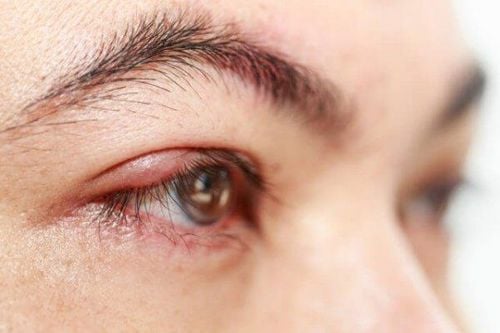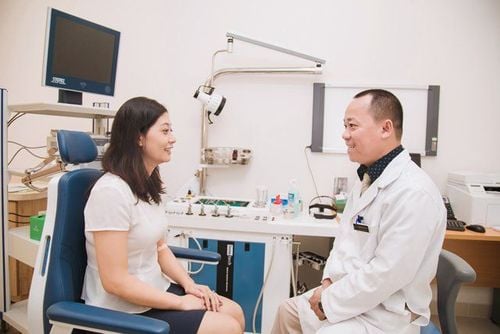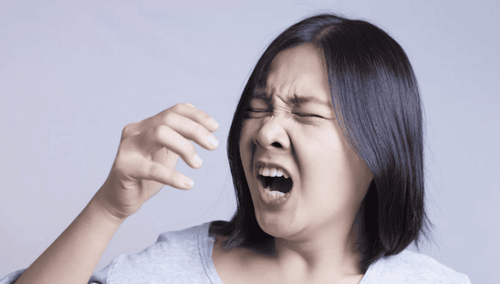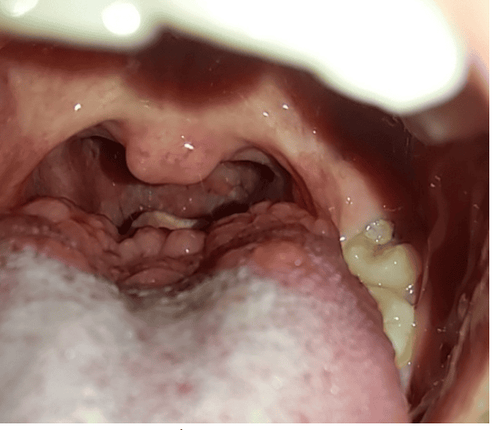This is an automatically translated article.
The article was professionally consulted by Specialist Doctor of Otolaryngology - Department of Medical Examination and Internal Medicine - Vinmec Hai Phong International Hospital.
Superinfectious allergic rhinitis often occurs when allergic rhinitis is persistent, untreated. Not only causing unpleasant symptoms that affect the patient's life, if not treated, superinfected allergic rhinitis can also cause respiratory complications such as pharyngitis, tonsillitis, bronchitis. manage,...
1. What is Superinfectious Allergic Rhinitis?
Allergic rhinitis is the response of the nose to exposure to airborne allergens. With allergic rhinitis, the immune system mistakenly identifies a normally harmless substance as an invader. The body will activate the immune system to react by releasing histamine and chemical mediators that cause symptoms in the nose, throat, ears, eyes, skin, and roof of the mouth. Allergic rhinitis can be seasonal or year-round. The most common causes of seasonal allergic rhinitis are pollen, hay, and spores. While the causes of year-round allergic rhinitis are dust, fur, cigarette smoke,... Sudden changes in weather and environmental pollution are factors that make allergic rhinitis more likely to appear. Congenital abnormalities of the nasal structure such as deviated septum, septal spines contribute to aggravation of the disease.
A disease that has a close relationship with allergic rhinitis is allergic rhinitis. Because of the same respiratory mucosa, in many cases, allergic rhinitis will cause swelling of the nasal tufts and lead to blockage of the drainage holes from the sinuses to the nose and lead to sinusitis.

When you have allergic rhinitis, the patient's nasal mucosa is damaged, so it is easy to be penetrated by pathogens such as viruses and bacteria. If not treated, allergic rhinitis lasts for a long time, the patient is at risk of superinfection with viruses and bacteria and causes a superinfection of allergic rhinitis.
Symptoms of superinfected allergic rhinitis are:
Sneezing: The patient can sneeze from a few times to a long stretch of several dozen times. After sneezing, the patient often feels tired and has a headache. Runny nose: The first is a clear runny nose, the natural runny nose is difficult to stop, it can be a lot of runny nose or just snorts, there are cases of runny nose behind the throat, the patient has to clear his throat and cough. , to spit. During the superinfection stage, the nasal discharge becomes thick, green or yellow, and may have a foul odor. Nasal congestion: It is possible to alternately stuffy nose on one side or stuffy nose on both sides. Nasal congestion will increase when the patient is in an air-conditioned room. Itchy nose: Feeling very uncomfortable, the patient has to often rub his nose with his hand. In addition, some symptoms may appear in nearby organs such as:
Itchy eyes, itching in the throat or nasopharynx. Eyelid edema, dark circles around the eyes, feeling of fullness in the ears, otitis media, hoarseness due to edema of the vocal cords.

If superinfectious allergic rhinitis is not treated, the superinfection will become more and more severe because viruses and bacteria grow and spread strongly. Patients may experience complications such as pharyngitis, tonsillitis, bronchitis,...
2. How to treat superinfected allergic rhinitis
When there are symptoms of superinfection allergic rhinitis, the patient should go to medical facilities for early treatment. If it is determined that the cause of the superinfection is bacteria, the doctor will prescribe the patient an antibiotic prescription. The doctor can also prescribe medicines to relieve symptoms of allergies, sneezing, runny nose, nasal sprays, throat sprays that work locally, ... to make the patient more comfortable. Patients should use the drug according to the doctor's instructions to quickly recover, do not arbitrarily stop the drug, change the drug without consulting the doctor.
To limit the risk of superinfection, allergic rhinitis must be well controlled, treated early when symptoms appear, and not prolonged. The drugs commonly used to treat allergic rhinitis today are antihistamines, vasoconstrictors and corticosteroids. Depending on the level of the patient, the doctor will prescribe the drug with the appropriate dose to achieve high efficiency and the fewest side effects.

Allergic rhinitis is very difficult to treat definitively. The most ideal way to prevent disease is to avoid contact with allergens, if you are allergic to house dust, you should keep your house clean, limit the use of stuffed items, carpets because this is a place to store a lot of dust. a lot of dust. Regularly wash sheets and pillows, keep the bedroom well ventilated. Pets should not be kept in the house if you are allergic to animal hair. If you are allergic to pollen, spores should close windows, use an indoor air purifier, and wear a mask when going out.
Vinmec International General Hospital examines and treats common nasopharyngitis diseases, head and neck tumors, congenital malformations of the ear, nose and throat area with the most optimal internal and surgical methods for patients, both children and adults. Coming to Vinmec International General Hospital, patients will receive a direct, dedicated and professional examination from a team of qualified and experienced medical staff.
To register for examination and treatment at Vinmec International General Hospital, you can contact Vinmec Health System nationwide, or register online.













